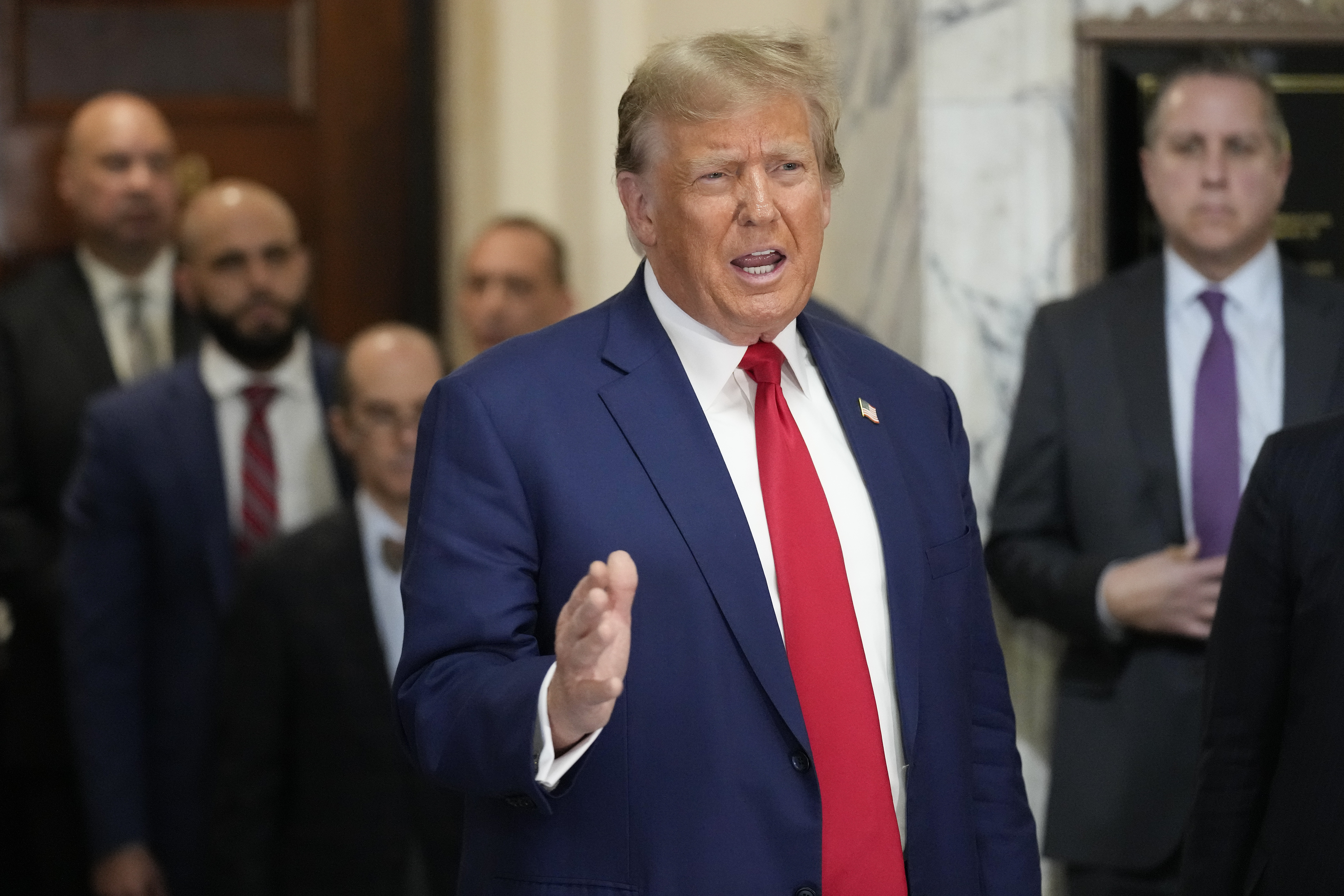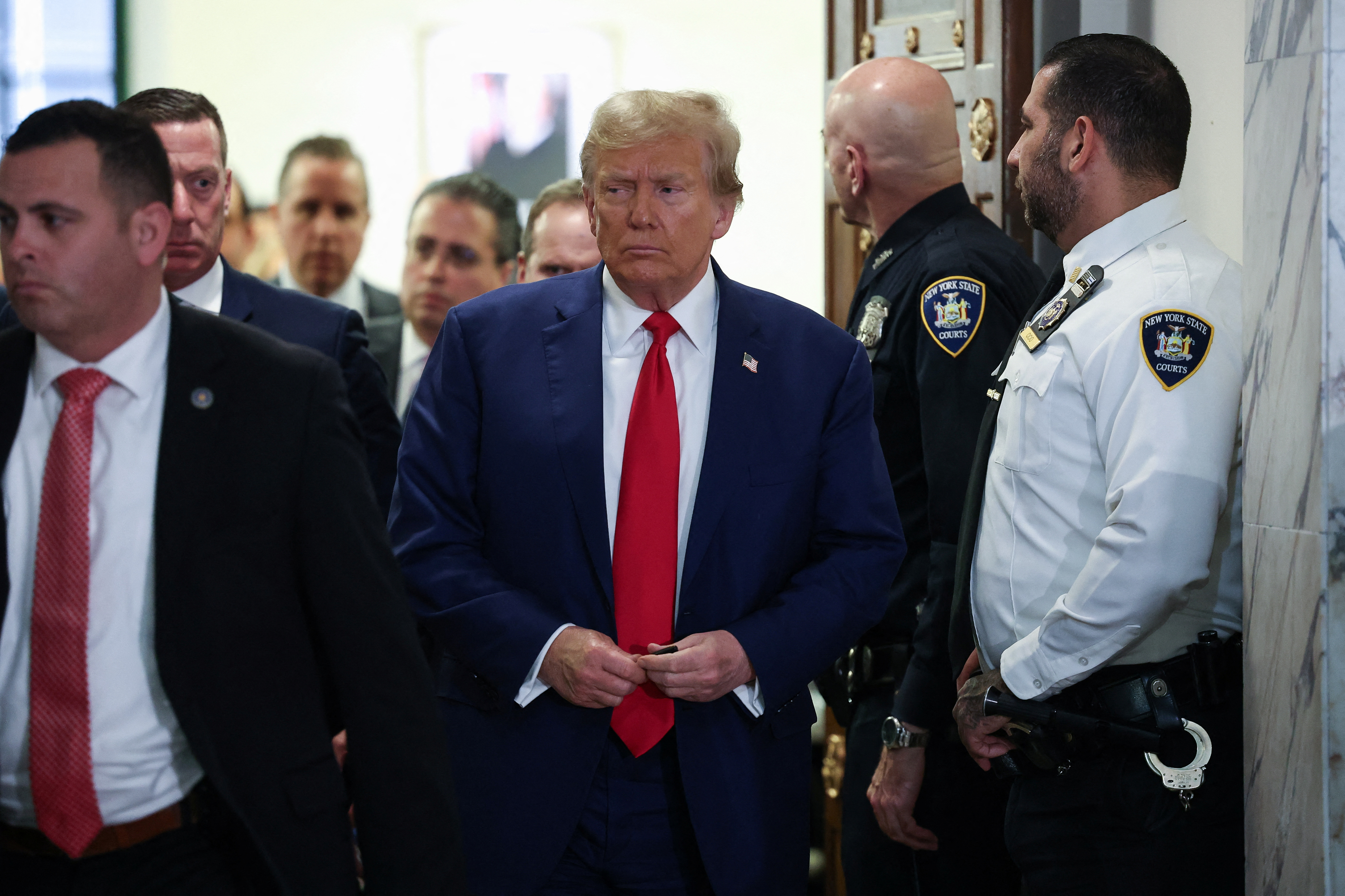
Former US President Donald Trump has used closing arguments in his civil fraud trial to attack New York Attorney General Letitia James.
Trump had sought to deliver Thursday’s full closing arguments, but permission was denied when he failed to sign off on restrictions stopping him from using the courtroom as an electioneering platform.
The former president is the current frontrunner for the Republican nomination to go against the current president, Joe Biden, in the November election.
Judge Arthur Engoron, who is ruling on what penalties to impose on Trump after an earlier decision that he and his company had manipulated property values fraudulently, allowed Trump to make brief additional comments after his lawyer had spoken.
Trump quickly took the chance to attack the New York state attorney general, saying, “They want to make sure I never win again. The [attorney general] hates Trump … and if I can’t talk about that it’s a disservice.”

James brought the case and is looking for a nearly $370m ruling and a lifetime ban on Trump from the state’s real estate industry.
“We have a situation where I am an innocent man,” Trump said, adding, “I’m being persecuted by someone running for office and I think you have to go outside the bounds.”
But Engoron attempted to interrupt Trump with a warning to wrap up his comments, to which the former president responded, “You have your own agenda, you can’t listen for more than one minute”.
The judge told Trump’s lawyer, Christopher Kise, to “control your client” in response to Trump’s statement.
The trial is one of multiple criminal and civil cases Trump faces as he seeks to return to the White House, ranging from a rape allegation to conspiracy to overturn the 2020 election.
On the final day of the trial, Engoron was sceptical of Kise’s argument that Trump should not be penalised for allegedly manipulating the value of his properties because lenders and insurance still turned a profit.
Engoron said there does not have to be any “evidence of harm”.
Throughout the trial, the state’s lawyers have looked to prove that Trump consistently overvalued many of the towers, golf clubs, and other assets that he had before he entered politics.
In November last year, Trump admitted to providing inaccurate property valuations.
“The myriad deceptive schemes they employed to inflate asset values and conceal facts were so outrageous that they belie innocent explanation,” James’s office said in a filing.
In one example heard at the court, James’s team argued that Trump valued his Mar-a-Lago Florida club by “asking prices” rather than actual sales prices.
“From 2011-2015 defendants added a 30 percent premium because the property was a ‘completed [commercial] facility,’” the filing said.
But Trump’s lawyer, Kise, argued that while there could be errors in Trump’s corporate financial statements, they do not “lead to the conclusion there was fraud”.
Trump is also scheduled to go on trial in Washington in March for conspiring to overturn the 2020 elections and in May for taking troves of highly classified documents in his belongings after he left the presidency.







